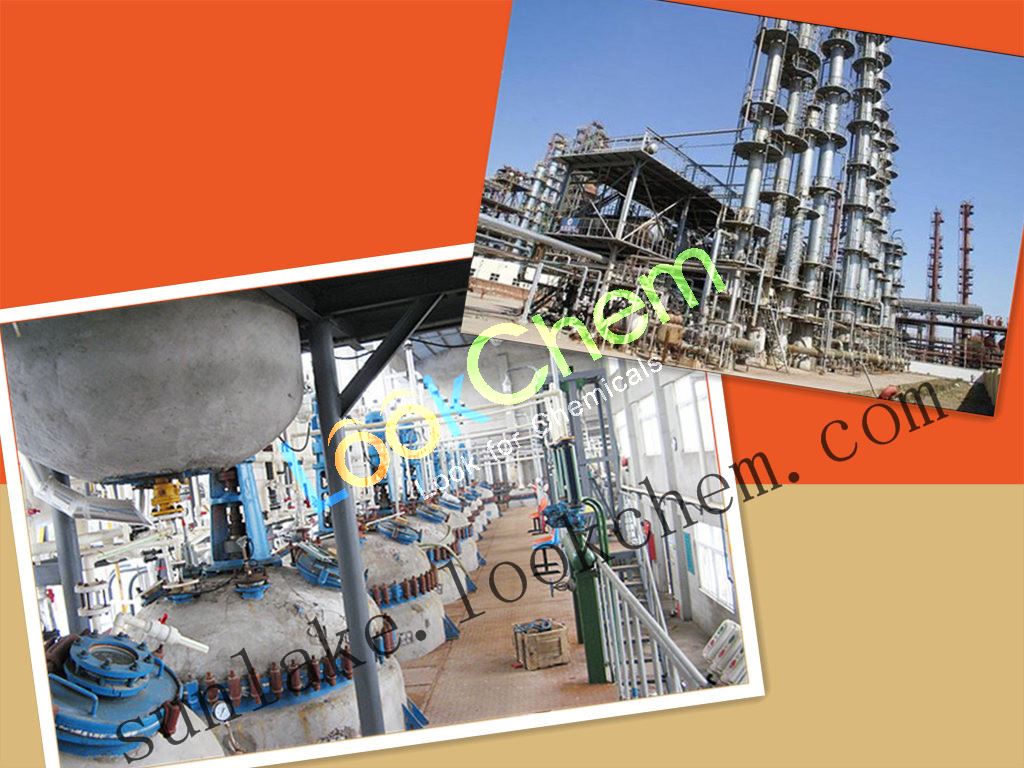Product Certification&
Enterprise Certification
Country: ![]() China (Mainland)
China (Mainland)
Business Type:Trading Company
Tel: 17734809689
Mobile:
Tel: 17734809689
Fax: +86-371- 86259723
Province/state: HENAN
City: ZHENGZHOU
Street: Mingmen International Center, NO.222 Dongming Road,Zhengzhou,Henan,China
MaxCard:
 Contact Suppliers
Contact Suppliers
CAS NO.129722-12-9
1(10-100)Metric Ton1(10-100)Metric Ton
| Aripiprazole Basic information |
| Product Name: | Aripiprazole |
| Synonyms: | ARIPIPRAZOLE;ARIPIPRAZOLE-D8;ABILIFY;ABILITAT;7-[4-[4-(2,3-dichlorophenyl)-1-piperazinyl]butoxy]-3,4-dihydrocarbostyril;OPC 14597;OPC 31;7-[4-[4-(2,3-dichlorophenyl)-1-piperazinyl]butoxy]-3,4-dihydro-2(1H)-quinolinone |
| CAS: | 129722-12-9 |
| MF: | C23H27Cl2N3O2 |
| MW: | 448.39 |
| EINECS: | 200-835-2 |
| Product Categories: | INORGANIC & ORGANIC CHEMICALS;Active Pharmaceutical Ingredients;API;Heterocyclic Compounds;Chemistry;Intermediates & Fine Chemicals;Neurochemicals;Pharmaceuticals;Isotope Labeled Compounds;Heterocycles |
| Mol File: | 129722-12-9.mol |
|
|
|
| Aripiprazole Chemical Properties |
| mp | 139°C |
| storage temp. | -20°C Freezer |
| CAS DataBase Reference | 129722-12-9(CAS DataBase Reference) |
| Safety Information |
| Hazard Codes | F,Xn |
| Risk Statements | 11-20/21/22-36 |
| Safety Statements | 16-36/37 |
| HS Code | 29349990 |
| Hazardous Substances Data | 129722-12-9(Hazardous Substances Data) |
| MSDS Information |
| Provider | Language |
|---|---|
| Aripiprazole | English |
| Aripiprazole Usage And Synthesis |
| Outline | Aripiprazole is a new kind of highly lipid soluble quinoline derivatives, its pharmacological effects characteristic is that it is not only the postsynaptic dopamine D 2 receptor antagonist, but also the presynaptic dopamine D 2 receptor agonist,it can also excite D 1, D 3, D 4 receptors ; it has dual effect of partial activation or receptor antagonistic on 5-HT 1A receptor ; it has a completely antagonistic action on the 5-HT 2A receptor. This feature is different from the first generation, and atypical antipsychotics which belong to the second-generation antipsychotic drugs, and therefore it is called dopamine system stabilizer or third generation antipsychotic. Since it is sold in the market, it is mainly used in clinical schizophrenia, treatment of affective disorders and other psychiatric disorders. According to the literature, aripiprazole has significant effects on schizophrenia positive and negative symptoms and anxiety, depression, cognitive function , while higher safety. It was also reported that the drug can also treat other mental disorders, such as mood disorders manic episodes, senile dementia associated with mental disorders, anxiety disorders, children's behavioral disorders, depression. |
| EU approves aripiprazole for treatment of schizophrenia |
Nowadays,Bristol-Myers Squibb and Otsuka Pharmaceutical Company announced that the European Union has approved Abilify (aripiprazole) in the treatment of schizophrenia listing application. Schizophrenia affects 1% of the global population, and more in young adults. Schizophrenia affects thinking, emotional control and decision-making ability of the patient. Schizophrenia-positive patients will have symptoms such as hallucinations and delusions, patients with negative symptoms are social withdrawal, lack of emotional changes. In 2002 the FDA approved Abilify for the treatment of schizophrenia, which has five dosage strengths: 5 mg, 10 mg, 15 mg, 20 mg and 30 mg, since its approval, in the United States ,a 1.8 million Abilify prescriptions have opened. aripiprazole approved by The EU has four sizes: 5 mg, 10 mg, 15mg and 30 mg. Aripiprazole as an kind of antipsychotic drugs, in rare cases it may be associated with life-threatening neuroleptic malignant syndrome induced (NMS), also be associated with tardive dyskinesia (TD) have some relevance. Studies have shown that atypical antipsychotics may lead to hyperglycemia, although the study did not examine aripiprazole, but the relationship between hyperglycemia and aripiprazole remains uncertain, therefore, patients in treatment should be carried out blood glucose monitoring. Patients before receiving aripiprazole treatment should be inform the doctor the physical condition and current drug situation . Aripiprazole should be used with caution in patients with a history of epilepsy aripiprazole. In short-term clinical studies, the most common adverse reactions of aripiprazole compared with placebo groups are: headache (32%: 25%), anxiety (25%: 24%), insomnia (24%: 19%), nausea (14%: 10%), vomiting (12%: 7%), somnolence (11%: 8%), lightheadedness (11%: 7%), restlessness (10%: 7%) and constipation (10% :8%). A double-blind 26-week clinical study showed that there was higher incidence of tremor in aripiprazole group , it is 9%, only 1% while in the placebo group, slight tremor but tolerable , but also often led to discontinuation. |
| Metabolize |
Metabolic pathway of aripiprazole is mainly through three kinds of biotransformation: dehydrogenation, hydroxylation and N- dealkylation. In vitro studies have shown, CYP3A4 and CYP2D6 are the two enzymes of the metabolism of the product , CYP3A4 and CYP2D6 are responsible for dehydrogenation and hydroxylation, and N- dealkylation is caused by CYP3A4 catalysis. Thus, when there is presence affecting two enzymatic activities and number of drugs, the amount of aripiprazole should be adjusted . In the steady state, pharmacokinetics of the product is proportional to dose. Single oral dose of 14C-labeled product showed that 55% of metabolites excreted through the feces, 25% excreted in urine and 18% of the original drug from the feces, 1% of the original drug excreted in the urine. The above information is edited by the chemicalbook of Tian Ye. |
| Toxicity |
Long-term toxicity: long-term toxicity study at a dose of 60 mg / kg for 26 weeks and 2-year carcinogenicity study at dose of 40 and 60mg / kg showed that this product caused retinal degeneration in rats. It showed no evidence of retinal degeneration in mice and monkey trials. Its mechanism of action has not been further researched, it is not shown that these findings is associated with human risks . Carcinogenicity: In female mice, the daily 3 ~ 30mg / kg dose (based on surface area, respectively, is 0.5 to 5 times the MRHD; calculated by AUC, respectively, MRHD plasma concentrations of 0.1 to 0.9 times) leads to increasing incidence of pituitary tumors, breast cancer and skin cancer adenoacanthoma ; in female rats, the daily 10mg / kg dose (based on surface area is 3 times the MRHD; calculated by AUC, is MRHD plasma concentrations 0.1 times) causes increasing incidence of breast fibrous tumor ,daily 60mg / kg dose (based on surface area, is 19 times the MRHD; calculated by AUC, is MRHD plasma concentrations 14 times) causes increasing incidence of adrenocortical cancer and adrenal tumors . Mutagenicity: in vitro bacterial reverse mutation assay, in vitro bacterial DNA recovery test, mouse lymphoma cells in vitro gene mutation test, Chinese hamster lung cells in vitro chromosomal aberration test, in vivo micronucleus test in mice and rats Unscheduled DNA synthesis test mutagenicity of this product. As a result, there is a positive response in the mouse micronucleus test in vivo, however, the positive reaction is considered to be independent to the mechanism of human . |
| Drug Interactions |
1.It should be used with caution in combination with drugs acting on the central nervous system and alcohol. 2. aripiprazole has possibility of enhancing the role of certain antihypertensive drugs. 3. CYP3A4 inducer will result in elevated aripiprazole clearance and lower blood concentration, CYP3A4 inhibitor azole) or CYP2D inhibitors can inhibit aripiprazole elimination, increase plasma concentration. |
| Adverse reactions | The most common adverse reactions during treatment are headache, anxiety and insomnia. Rare adverse reactions are child blood sugar, even hyperglycemia. |
| Application | Antipsychotics |
| Chemical Properties | Colourless Flake Crystalline Solid |
| Usage | A deuterated version of Aripiprazole, a selective dopamine D2-receptor antagonist with dopamine autoreceptor agonist activity. Please note that users have reported separation of this compound and aripiprazole under normal-phase and reverse-phase |
| Usage | A selective dopamine D2-receptor antagonist with dopamine autoreceptor agonist activity. Antipsychotic. |
| Usage | cerebral vasodilator, antimotion |
| Usage | For the treatment of schizophrenia and related psychotic disorders. |
Service we provide:
1. Mixed container, we can mix different items in one container.
2. Quality control, before shipment, free sample for test. after shipment, keep sample for 3 years
3. Prompt shipment with professional documents
4. Packing as your request, with photo before shipment
We have clients throughout the world:
Professional service and rich experience make customers feel at ease, adequate stock and fast delivery meet your desire.

Our Laboratoy
We have our own independent lab test center:
This makes sure that our technology support is reliable and authoritative.All of self-owned fine chemicals are manufactured strictly in accordance with international standard.,and also has scientific cooperation with local colleges and institutes.

Our factory
High quality with competitive price:
We are manufacturer and can provide high quality products with factory price

Package & Shipment
Fast and safe delivery:
Parcels can be sent out within 24 hours after payment. Tracking number is available
Secure and discreet shipment. You have various choices of transportation methods
